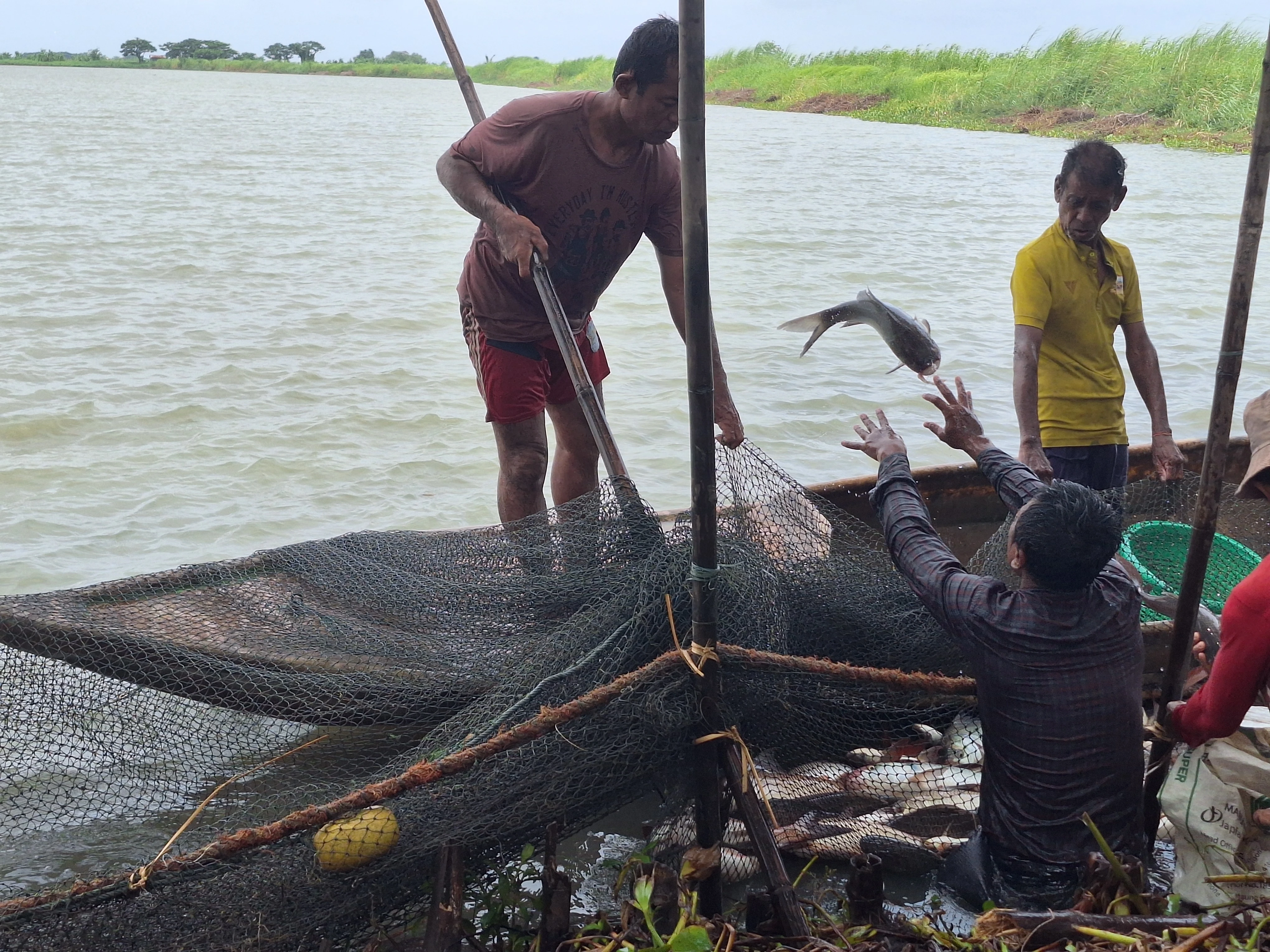

About
Services
Courses
Resources

Since 2019, the Powering Aquaculture Progress (PAP) project has been working to strengthen the resilience and livelihoods of small-scale fish farmers and aquaculture workers in the Ayeyarwady Delta and Yangon Region. Co-funded by the Netherlands Enterprise Agency (RVO) and De Heus, and implemented by Fresh Studio and De Heus, PAP set out to improve farming practices, increase access to quality inputs, and build stronger value-chain linkages in Myanmar’s aquaculture sector.
This year, MDF successfully conducted an independent end-line evaluation to assess PAP’s effectiveness, impact, and sustainability. Our team applied a rigorous mixed-methods approach guided by the OECD-DAC criteria, using Key Informant Interviews, Focus Group Discussions, and direct field observations with farmers, workers, hatcheries, implementing partners, and local stakeholders.
Our work served two equally critical functions:
1) Accountability
Capturing outcomes achieved over six years and documenting how the project influenced Myanmar’s aquaculture sector despite a highly volatile operating environment.
2) Learning
Extracting the drivers of success, identifying barriers and contextual constraints, and highlighting what is required to ensure that gains are sustained beyond the project’s end.
Our Approach: Evidence with Usability in Mind
To ensure that findings translate into meaningful action, we anchored the evaluation on the following principles:
.webp)
By combining qualitative insight with field intelligence, the evaluation generated clear, evidence-based recommendations aimed at strengthening sustainability pathways for the aquaculture ecosystem in Myanmar — long after donor funding ends.
At MDF, we believe in going beyond in our evaluations — they should sharpen decision-making, generate learning, and increase long-term impact. We are proud to have contributed to the PAP project and to the future of sustainable aquaculture in Myanmar.